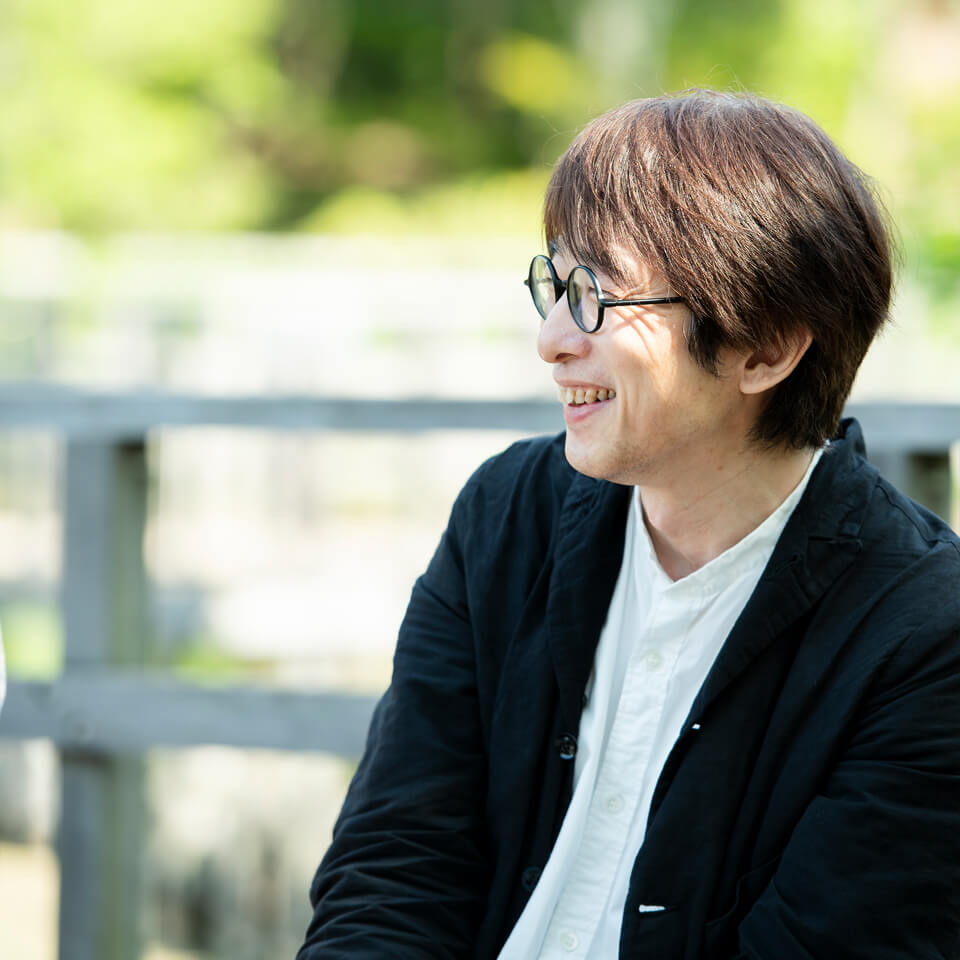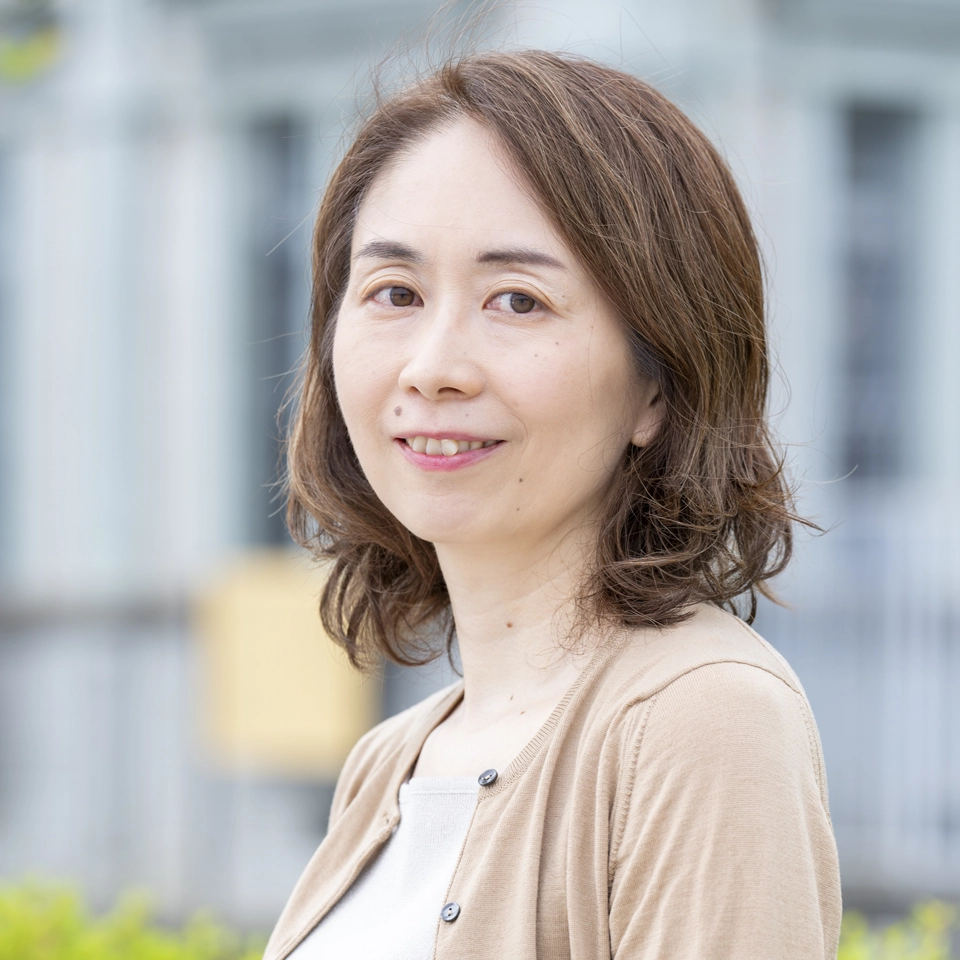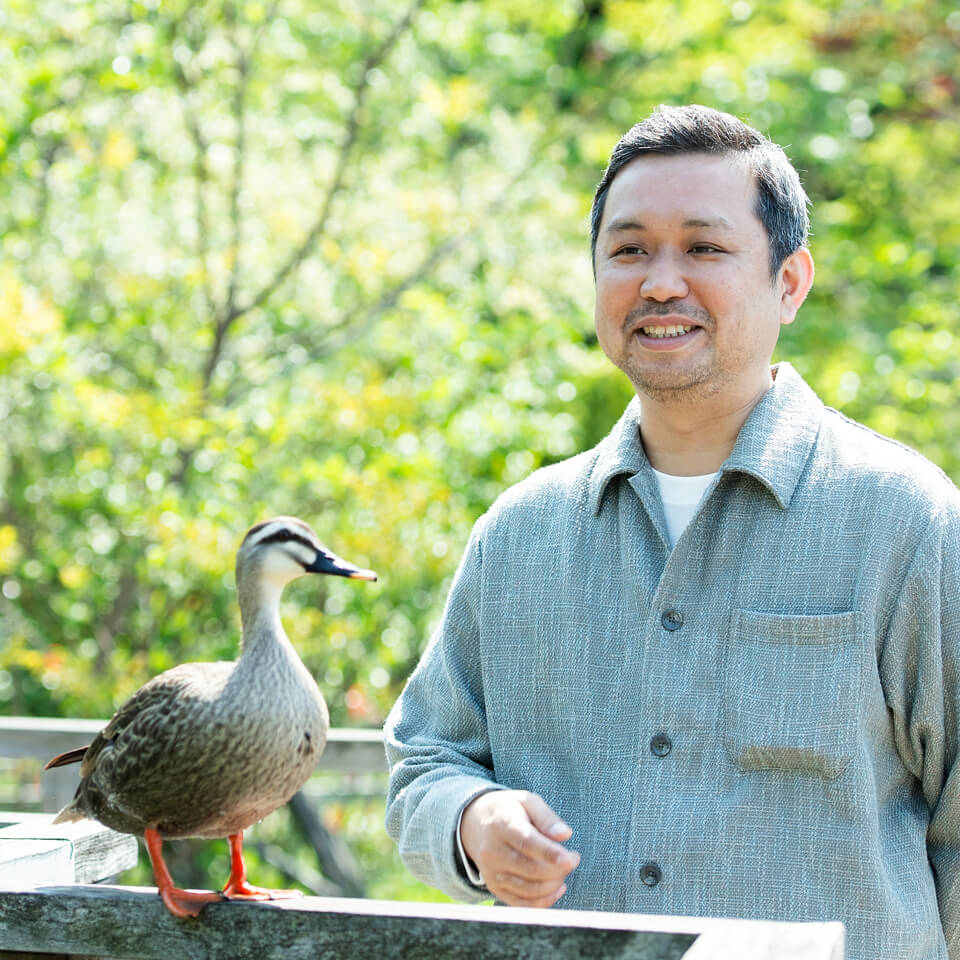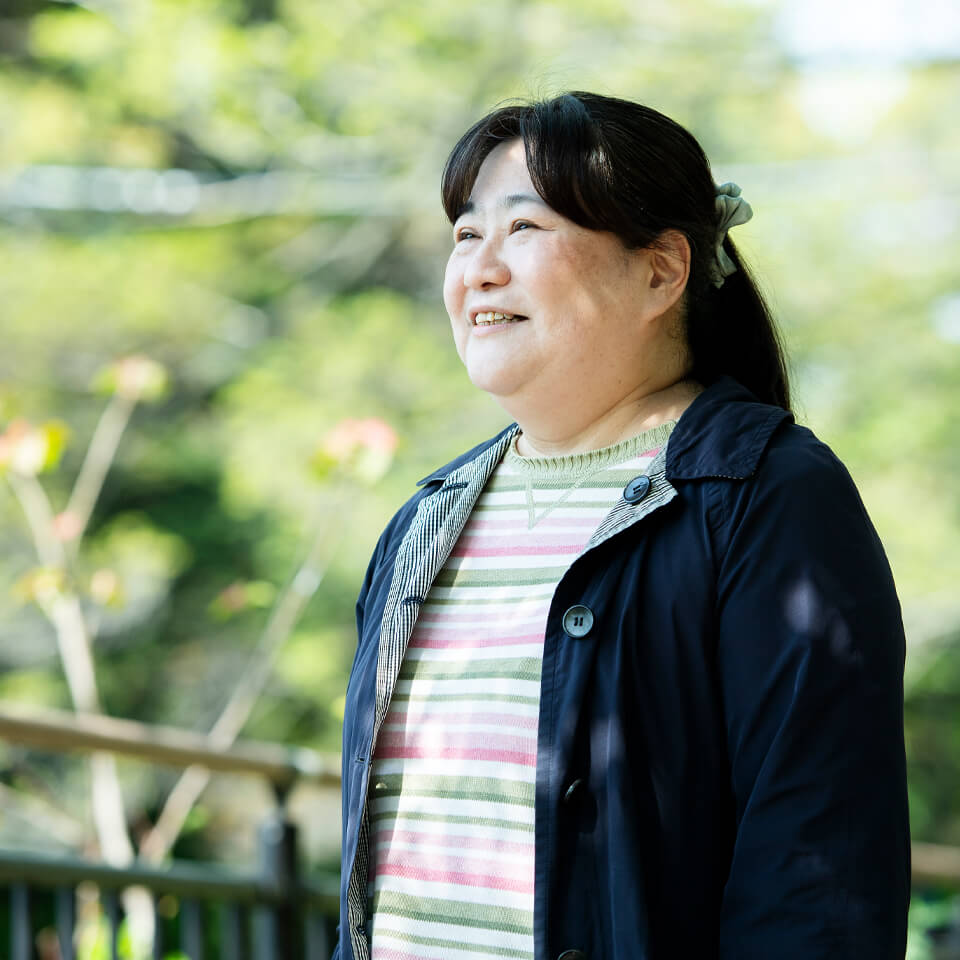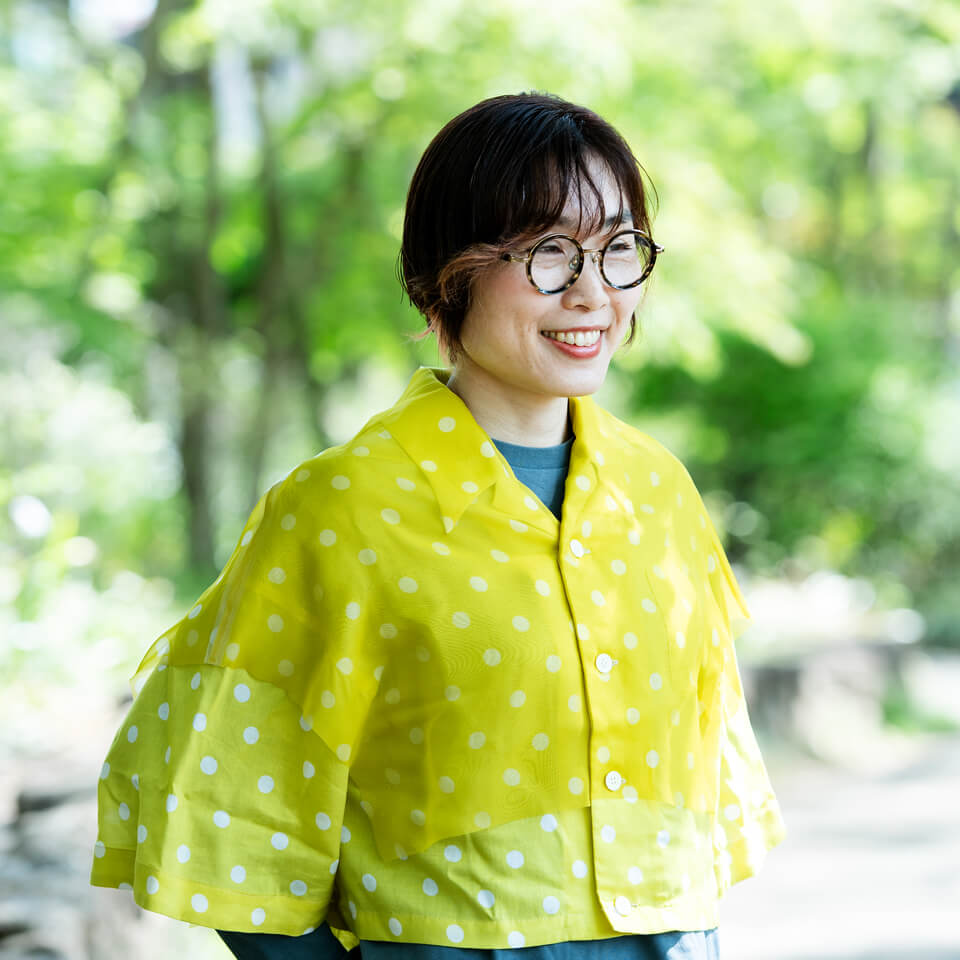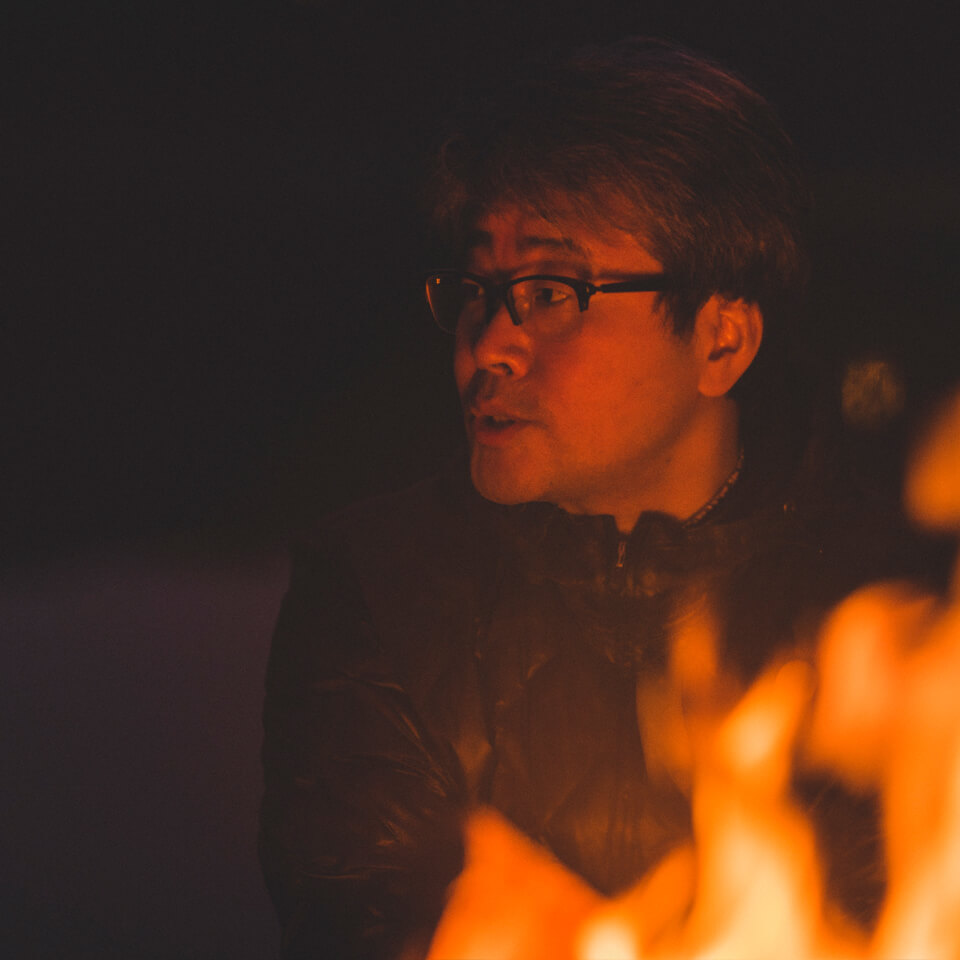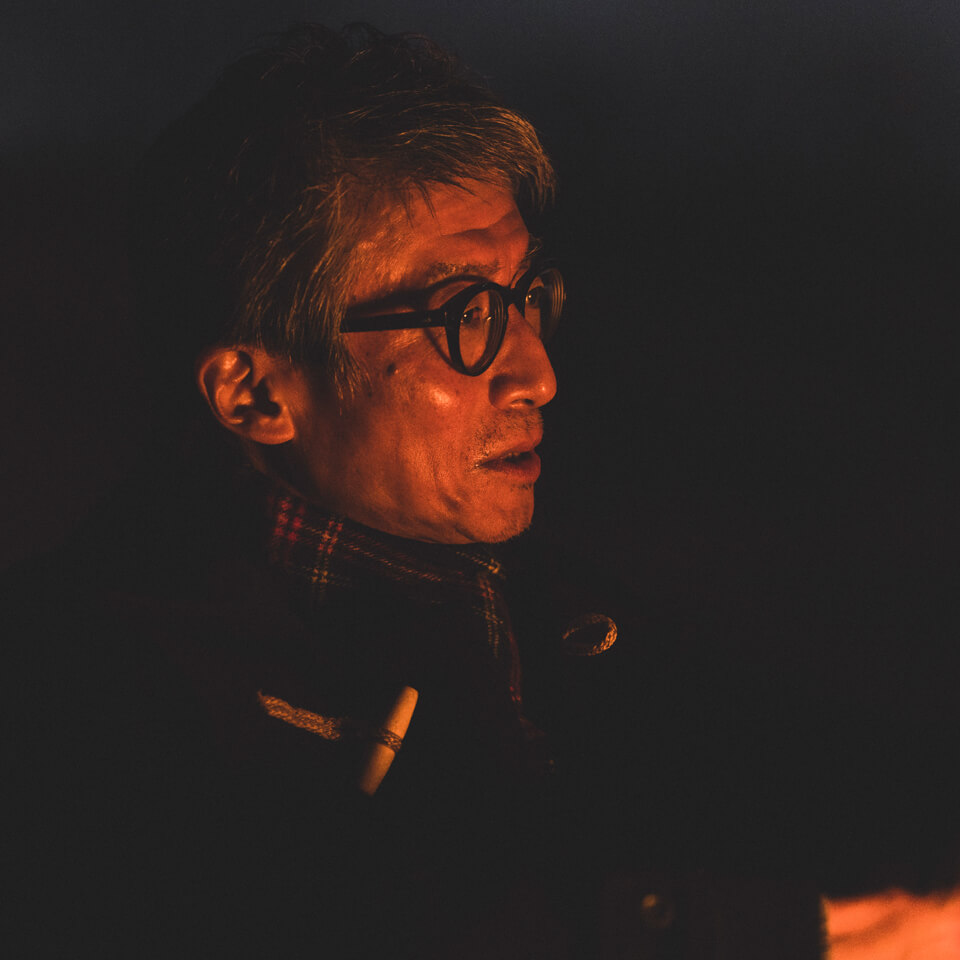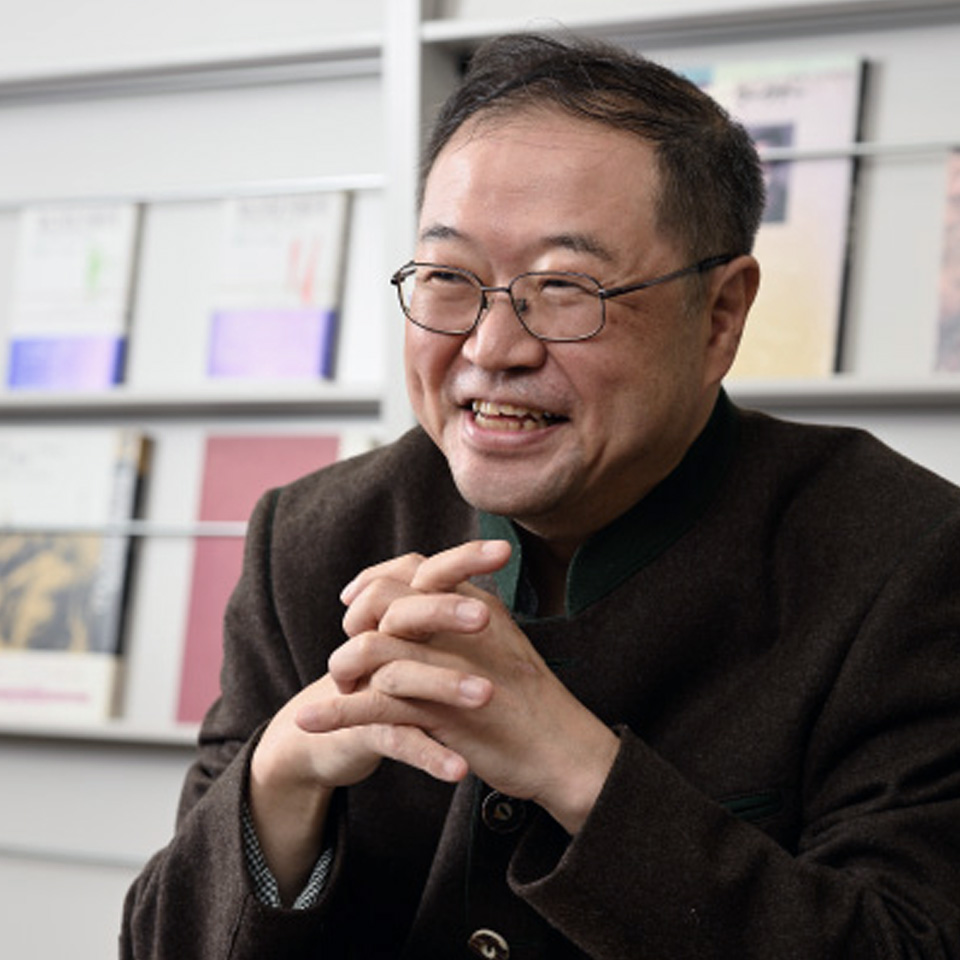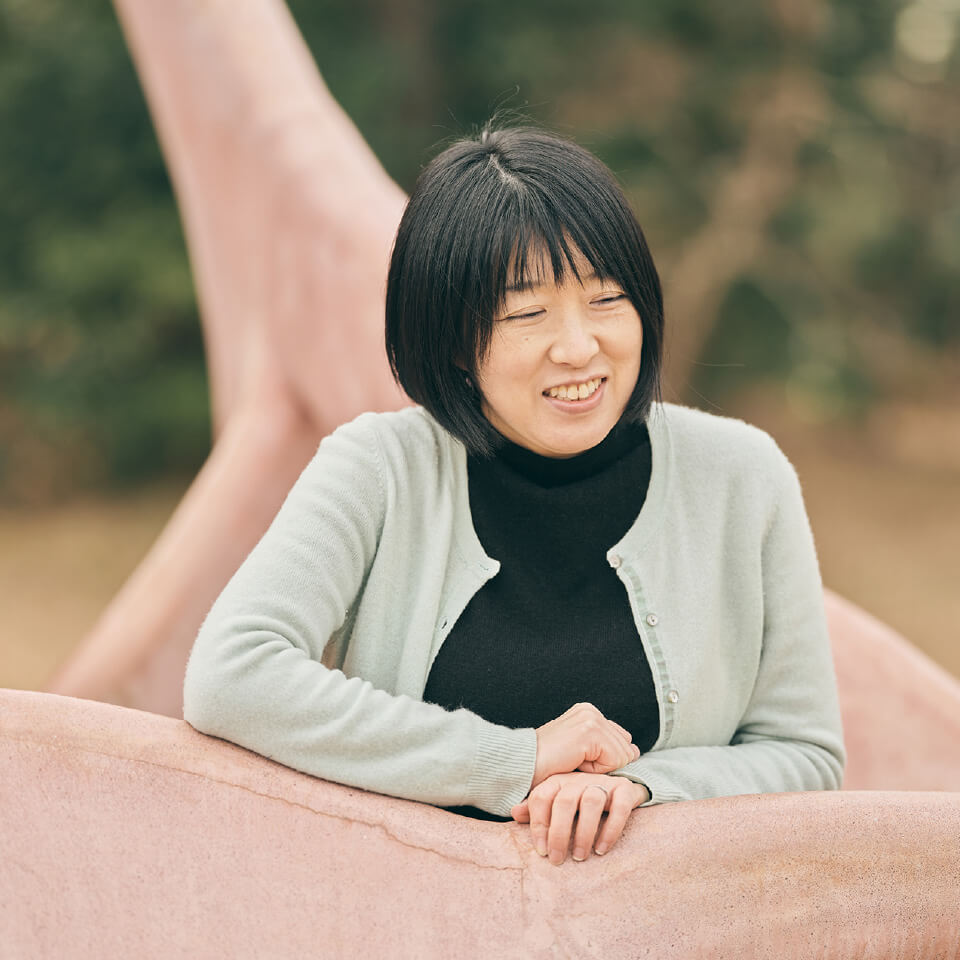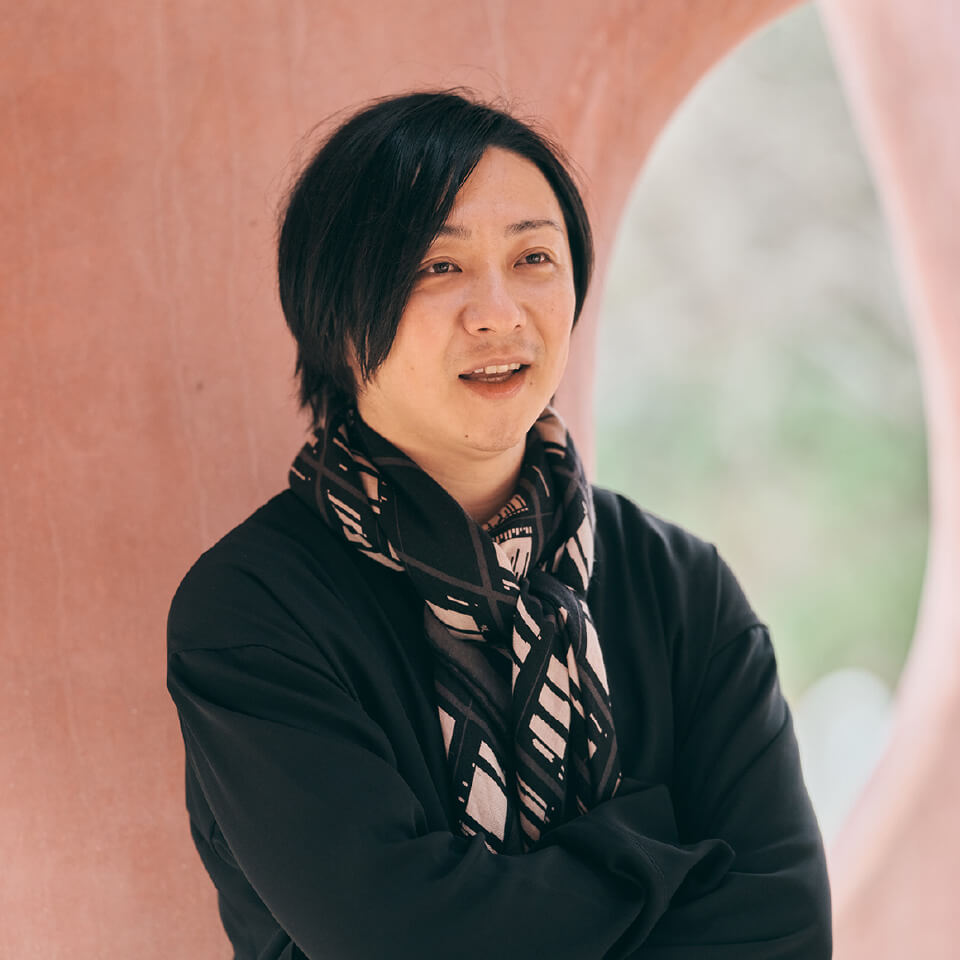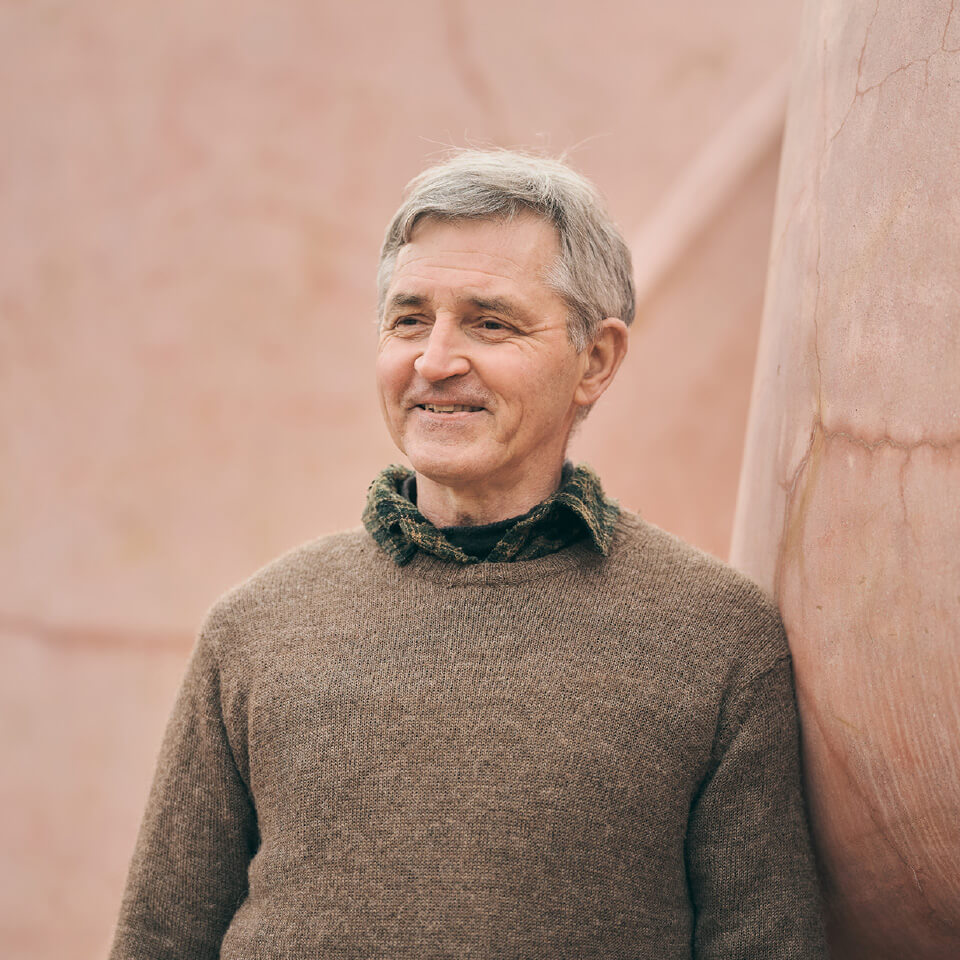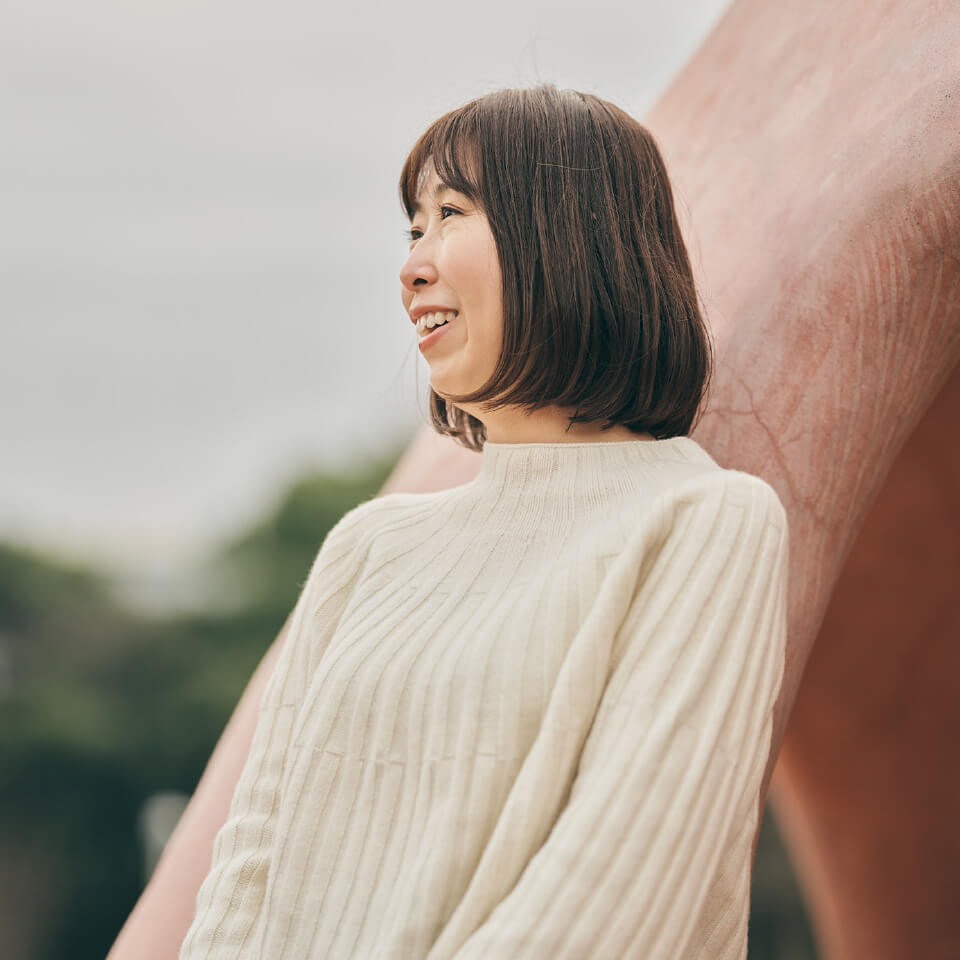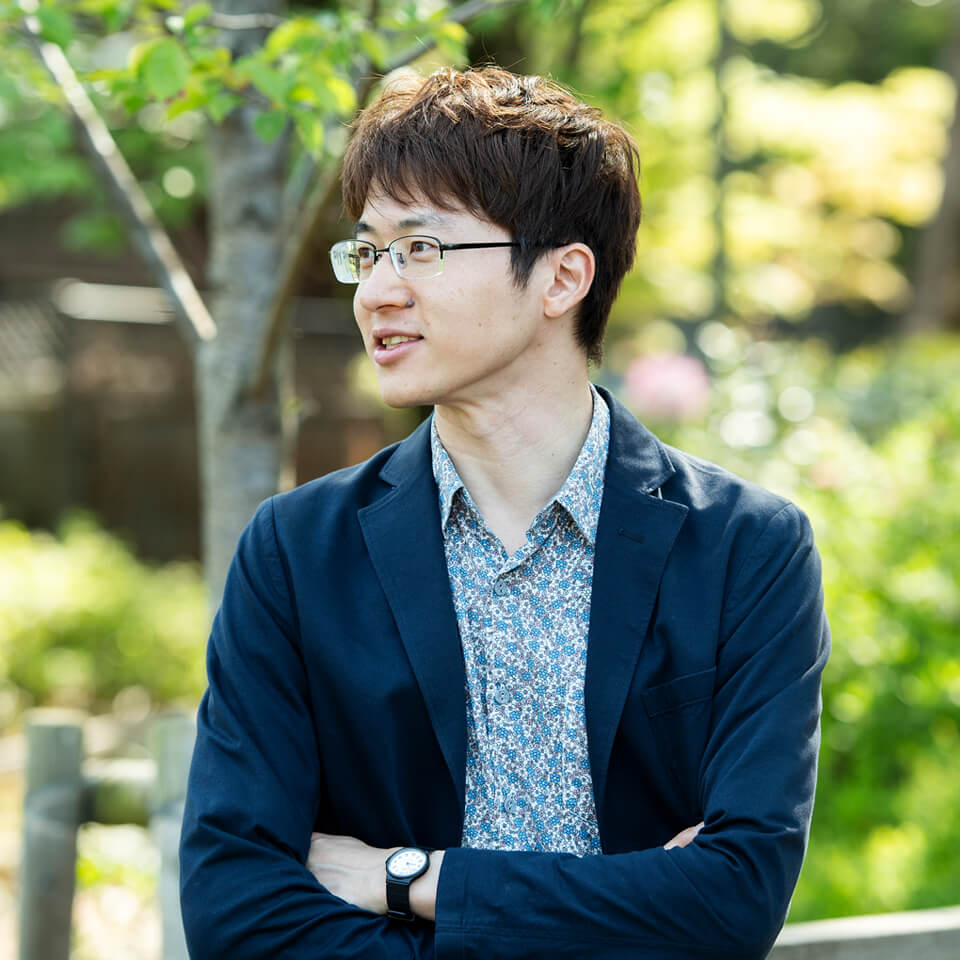About the centerFuture of Humanity Research Center
Technology has brought about a massive shift in our lives and is quietly shaking up the definition of “human.”
It may not be long before we make decisions based on the judgement of AI.
As human genome editing technology develops, it becomes more likely that humans could intervene in their own evolutionary process.
Where did we come from? Who are we? Where are we going? In order to bring out the greater potential of technology,
it is indispensable to set practical and essential questions on what humanity will be like decades or centuries from now.
We must explore from various angles the changes technology is making to humanity, the values to be protected,
and the potential it has, keeping in step with cutting-edge science and technology research.
In February 2020, in order to find answers to these questions, the “Future of Humanity Research Center” was established in the Institute of Innovative Research at Tokyo Tech.
Although born from a science and technology university, the new center is focused on the humanities and social sciences
and is home to various researchers from the Institute for Liberal Arts. The maximum term for members is two years, in principle, which ensures the
constant inhalation and exhalation of fresh perspectives, as if the center itself were breathing.
Furthermore, the center collaborates with science and technology researchers and experts from a diverse range of fields both nationally and internationally.
From our base at Tokyo Tech, we ponder the future of humanity and communicate with the world through our actions and spirit.
It may not be long before we make decisions based on the judgement of AI.
As human genome editing technology develops, it becomes more likely that humans could intervene in their own evolutionary process.
Where did we come from? Who are we? Where are we going? In order to bring out the greater potential of technology,
it is indispensable to set practical and essential questions on what humanity will be like decades or centuries from now.
We must explore from various angles the changes technology is making to humanity, the values to be protected,
and the potential it has, keeping in step with cutting-edge science and technology research.
In February 2020, in order to find answers to these questions, the “Future of Humanity Research Center” was established in the Institute of Innovative Research at Tokyo Tech.
Although born from a science and technology university, the new center is focused on the humanities and social sciences
and is home to various researchers from the Institute for Liberal Arts. The maximum term for members is two years, in principle, which ensures the
constant inhalation and exhalation of fresh perspectives, as if the center itself were breathing.
Furthermore, the center collaborates with science and technology researchers and experts from a diverse range of fields both nationally and internationally.
From our base at Tokyo Tech, we ponder the future of humanity and communicate with the world through our actions and spirit.
Organization
In February 2020, the Future of Humanity Research Center was established in the Institute of Innovative Research (IIR) in order to promote liberal arts study. The IIR is an organization that comprises world-class research teams at Tokyo Tech, including the Cell Biology Center led by honorary professor and Nobel laureate Yoshinori Ohsumi. (In October 2024, Tokyo Institute of Technology and Tokyo Medical and Dental University merged as Science Tokyo, and FHRC was reorganized as a research center within the newly created Institute of Future Science.) The Future of Humanity Research Center is focused on the humanities but walks hand in hand with leading-edge science and technology research. Under an internal cross-appointment system, ILA faculty belong to the center for two years, in principle.

Member
-

-
Takamitsu Yamamoto,Professor
Director of FHRC, Water Project Leader, History of Ideas, LudologyProfile
How did the Sciences and the Arts come to be the way they are today? What kinds of histories do they have? In various places and eras, knowledge and ideas have changed while being passed on from person to person, translated from language to language, and transferred from culture to culture through words and objects. It sometimes seems as if scholarship [academia] itself is a living thing that grows, making use of both people and things. I think the 5,000-year history of trial-and-error in the Arts and Sciences since the spread of writing contains people's ideas and desires, countless failures and just a few successes. I believe that very history may provide clues for understanding the future of humankind and this world.
-

-
Aiko Hibino,Professor
Social Psychology, Group Dynamics, Emerging Technologies and SocietyProfile
My research in social psychology examines how discourses and images participate in the construction of “reality.” The ways in which new technologies are envisioned are shaped by such discourses and representations. At the same time, the emergence of technology itself exerts transformative effects on existing systems of meaning and social institutions.
One example is the recent development of cell culture technology, which enable the production of edible materials from individual cells without involving the death of animals. The advent of such technologies raises important questions: How might the value of meat be redefined? How will the experience of eating change? What new forms of expertise will become necessary? By engaging in dialogue and collaboration across diverse fields, I seek to explore the evolving relationship between technology and society, with particular attention to practices and meanings surrounding eating.
-

-
Ryoichi Yamane,Associate Professor
American Literature, cultural. Critical Theories
Population Project LeaderProfile
When revisiting the corpus of American literature, especially works from the 1950s, I frequently encounter themes deeply intertwined with Japanese history and culture, such as political ideology, gender issues, racial issues, and nuclear weapons. However, it is worth noting the absence of discourse on population matters as a shared issue between Japan and the U.S. Despite the global baby boom during this period, or perhaps precisely because of it, the primary focus in American literature and its criticism has been on individual internal conflicts. To address this apparent oversight in the literary tradition, I believe it is a valuable opportunity to thoroughly examine the issue of population from a cultural perspective.
-

-
Naoko Kuriyama,Lecturer
Cognitive Psychology, Educational PsychologyProfile
My research focuses on human thinking, reasoning and problem solving from the viewpoints of cognitive psychology, educational psychology and educational technology.
Humans use "metaphors" and "analogy" to explain or solve something. These not only facilitate, but also cause us to make mistakes. And, conversely, these mistakes can lead to new discoveries. I am very interested in this flexibility of human thinking.
At the Future of Humanity Research Center, we study population issues. I hope to maximize the flexibility of my own thinking while talking with professors who specialize in different fields. I would like to study how young people, who will be responsible for the future of society, think about the population problems. I would like to think from the viewpoint of rita about these problems.
-

-
Yuuri Kimura,Associate Professor
Science EducationProfile
To learn is to change. I engage with questions about how science is learned, particularly from the unique perspective of reexamining the relationship between science and people. What kind of relationship will future humans build with science and technology? By tracing the sometimes entangled and intertwined lines of connection between people, things, communities, and cultures, I hope to explore the relationships between science, technology, and human beings. At the Future of Humanity Research Center, I will go beyond disciplinary boundaries to focus on these “entangled” relationships. While enjoying new perspectives and the occasional eye-opening revelation, I, too, hope to continue changing.
-

-
James Frances Loftus,Associate Professor
Archaeology, Biological Anthropology, Computational/Digital ArchaeologyProfile
If 98% of human “history” lies buried in the broken remnants of prehistory, can today’s technologies help us decipher the traces of humanity inscribed in material things? Starting from this question, my research uses computational and digital archaeology to investigate how human behavior, social structures, and knowledge transmission are embedded in the material remains of the past. I treat artifacts as data, analyzing them through the integration of 3D scanning, morphometrics, and machine learning within the broader framework of digital transformation (DX). At the Future of Humanity Research Center, I aim to explore the interactions between people, objects, technologies, and environments from a transdisciplinary perspective bridging the sciences and humanities. If the past is a mirror of present humanity, what kind of vision of the future might it reveal?
-

-
YANG Guanqiong,Associate Professor
Chinese Literature, Media StudiesProfile
I am broadly interested in modern and contemporary Chinese literature and culture. In particular, by engaging with the works of the Post-'80s generation—authors born in the 1980s—I examine the complex cultural landscape of the post-socialist era where shifting values, the dynamics between the individual and the state, what we remember and what is forgotten, and the body and media all intertwine. How do we confront the past, and how do we envision the future? These questions are inscribed not only in literature, but also in digital spaces, media, music, and visual culture. I seek to explore the entangled dimensions of these cultural expressions from multiple perspectives.
-
-
蛭田彩人協力研究員(2021.1 〜)
PROFILE
-
OB、OG
-

-
Asa Ito,Professor (2020.2〜2024.9)
Art
First Director of FHRC
Director of Institute of Future Science / DLab+ (as of 2024)Profile
The Future of Humanity Research Center draws together knowledge from across the boundaries between the humanities and sciences, industry and academia, and theory and practice. What makes the center somewhat extraordinary is that people can only encounter different knowledge after they separate from the viewpoint, values, and philosophy in which they are usually immersed. Long-term thinking as opposed to immediate judgement; diverse wisdom instead of a single correct answer. I am eager to take a fresh look at humanity through the lens of rita — the Japanese word for altruism.
-

-
Takeshi Nakajima,Professor (2020.2 〜2022.3)
First Rita Project Leader, Political ScienceProfile
A constant emphasis on self-reliance, bashing welfare recipients, and an exclusive attitude toward immigrants are conspicuous in western society. I wonder if the spirit of rita will become crucial to the future of humanity, as people are losing tolerance and scrambling over limited slices of the pie. Can other exchange systems such as gifting work against a global capitalist system that widens the gap between rich and poor? At the Future of Humanity Research Center, I hope to develop a new rita-ism, bringing together the wisdom of the humanities and social sciences, and conducting a dialogue with the knowledge of science and technology.
-

-
Eisuke Wakamatsu,Professor (2020.2 〜2022.3)
Human StudiesProfile
The deeper the act of rita goes, the less “rita-ish” it tends to appear. Besides, it often occurs without the donor and recipient being aware. For example, the world is now paying attention to the issue of climate change. This could benefit not only our contemporaries but also generations to come. I hope we can keep rita-ism at the forefront of our minds as we bridge various fields.
-

-
Kenichiro Isozaki,Professor (2020.2 〜2022.3)
LiteratureProfile
The role of a novelist is neither to convey the author’s message through their work nor bring to light problems in modern society through stories, as is commonly believed, but to update the novel’s form and serve its history and genealogy one sentence at a time, as if thrusting into uncharted territory. In other words, novels are by no means self-expression. It is not the author as an individual, but the world around them that should be illuminated.
-

-
Koichiro Kokubun,Visiting Associate Professor (2020.2 〜2022.3)
PhilosophyProfile
The term rita is composed of the characters for “benefit” and “others.” Philosophy has a rich accumulation of the concept of others. However, I now feel that concept is being swayed silently but extensively. Philosophy is becoming aware of the need to think of others, traditionally emphasized as being “different” rather than “similar.” This huge conceptual transformation will change the meaning of “benefit,” which was formerly considered obvious. I am quietly excited about the possibility of a rita-ism that brings a tectonic shift in philosophy.
-

-
Taro Yamazaki,Professor (2020.2 〜2022.3)
German Opera / German LiteratureProfile
When you get concerned deeply with the fate of the others, or, when you get fascinated by something, be it art or sports, you would feel your "self" somehow disappears from your consciousness. The experience is largely pleasant because you are opened up towards the outside and the outside flows into you. This interactive and unrestrained movement liberates you from the suffocation caused by your own ego. In this sense, rita is nothing but the inclination of one's mind to save oneself. It should be rooted deeply to the human nature itself, beyond any nominal behavior principles and superficial moral guidance. Through conversations with people and books, I would like to ponder on various manifestations of such rita.
-

-
Kumiko Kiuchi,Associate Professor (2021.4〜2023.3)
Chief Editor of “COMMONS”, Comparative LiteratureProfile
Understanding the others somewhat resembles to translation. The work of translation is about transferring the words and the meanings of the original text written in a certain language to another with understanding it faithfully as possible. The word "faithfully" seems to imply the contribution toward the others such as the original text. But it is extremely challenging. Because of the difference between languages and the difference between the cultural and social contexts, combined with the biases of the translators themselves, misunderstandings and misreadings are inevitable. However, the possibility of understanding only arises when you approach and contact the others. Understanding the others as a process of attempts──in this process, rita could be something only discovered a posteriori (and in many cases, remains undiscovered), one kind of (and countless possibilities of) serendipity.
-

-
Kyohhei Kitamura,Associate Professor (2021.4〜2023.3)
Second Rita Project Leader, Studies of Culture and RepresentationProfile
I wonder how the technology called visuals has been projecting rita so far. The deed called visual expression is a type of fiction which differs from everyday demeanor and appeals the watchers with non-linguistic force. Going through an eye of a camera, it sometimes resonates with the memories of the watchers or make them recognize recursively the activities and the worlds which are unseen or unnoticeable in everyday life. I also wonder how the mediation of smartphones, social media and social VR platforms around us relate to rita. At Future of Humanity Research Center, I would like to pursue the possibility of rita-ism from the aspect of visual/media technologies.
-

-
Yoshimi Takuwa,Lecturer (2022.4〜2024.3)
Third Rita Project Leader, History of ScienceProfile
The most exciting part of the history of science is to see the appearance of a theory that overcomes the common sense (paradigm) of the time, and to see contemporary scientists frantically conducting experiments and debating whether the theory would be accepted or not.
Since the existing scientific community was formed by the paradigm of the preceding era, it generally finds it hard to accept an outrageous theory that will turn into the paradigm of a new era. For this reason, I love "selfish" scientists (e.g. Newton) who disregard the scientific community, give up even discussion of the issues, and develop outrageous theories of their own. At the Future of Humanity Research Center, I would like to focus my work on a scientific community that has a rita-ish tendency, in order to deeply understand the behavior of such selfish scientists.
-

-
Hugh de Ferranti,Professor (2022.4〜2024.3)
MusicologyProfile
A student asked me ‘Who wants to get back to reality through music?!’
I understood just what he meant - as immersive as dreaming, music helps us get through this life precisely because it takes us ‘out’ of our mundane world. Yet music is both in the world and within our bodies; it is itself an overwhelming reality. Even if we make it with AI programs, we experience it as sonic energy, and we cannot stop it; the only way to ‘get away’ from music is to leave, or else force the musicians or machines to stop. We are all in it together.
-

-
Aya Kawamura,Associate Professor (2022.4〜2024.3)
Russian CultureProfile
I specialize in art history, focusing on Russian and Soviet visual culture. Although an artist cannot complete his works without the audience, he creates them on his own imagination and concept, not being aware of the audience. On the other hand, the audience gets a strong impression from art works. He feels comfortable or even uncomfortable, when he contemplates them. In other words, there is communication between the artist, works, and the audience, and sometimes it works beyond our expectations. In this point, art can be considered in the relation to rita, that is not a one way from the giver to the taker. I am looking forward to developing my consideration of art from the view point of rita.
-

-
Shinji KAWANA,Visiting Professor (2023.4〜2025.3)
International Politics, Security StudiesProfile
I have a keen interest in the international politics surrounding U.S. military bases and often read declassified U.S. diplomatic documents. Given the sensitivity of military base issues, I strive to maintain a neutral stance towards policy debates and perspectives informed by personal values. However, I am currently focusing on the topic of water, which is essential for life; this allows me to delve deeper into social norms and people's needs, which are areas I'm eager to explore further.
-

-
Masaki Takahashi,Associate Professor (2023.4〜2025.3)
Chrono-nutrition, Precision nutritionProfile
My research areas are chrono-nutrition and precision nutrition. Today, the issues and challenges surrounding nutrition and dietary habits are becoming diverse, and nutrition science is required to consider the individual biological rhythms, life style rhythms, and environmental factors. Water, which is the subject of this project at the Future of Humanity Research Center, is strongly related to nutrition science and is viewed in different ways depending on the perspective and “level” from which it is approached, for example environmental, ecological, and biological ones. I would like to focus on the circulation of water and examine the effects of water on our health from micro to macro levels. I am also looking forward to interactions and collaborations on the Center's projects with researchers in the humanities and sociology.
-

-
Kei Ehara,Visiting Associate Professor (2024.4〜2025.3)
Marxian economicsProfile
Economics might seem far removed from the concept of rita, yet it is perplexing that this study, fundamentally centered on human activity, has not more deeply integrated consideration of others and collaborative actions. To address this, let's rethink what “population” really means in the context of economics. Traditionally, economics starts with the notion of homo economicus — the self-interested individual. Recently, there has been a trend of “retracing the journey” to revisit the importance of collaboration for homo economicus. However, it was the issue of population that originally spurred the development of economics. If homo economicus was abstracted from a society experiencing population growth, then perhaps a model based on a society with a declining population would yield different assumptions. The Rita Project aims to go against the trend of “retracing the journey” and instead focus on “tracing the journey” forward.
Design : Fuminobu Nakamura (SEWI)
Web : Shota Watari (caren)
Photo : Naoki Ishikawa/Junya Igarashi/Tsutomu Ogino (TOMART)/Kyoko Kataoka
Movie : Kazutoshi Hasegawa (hoozukisha)/Shinichi Arimoto (ginatayomi)/Fuminobu Nakamura (SEWI)
Web : Shota Watari (caren)
Photo : Naoki Ishikawa/Junya Igarashi/Tsutomu Ogino (TOMART)/Kyoko Kataoka
Movie : Kazutoshi Hasegawa (hoozukisha)/Shinichi Arimoto (ginatayomi)/Fuminobu Nakamura (SEWI)
Event & Lab Spaceイベント&ラボスペース
東京科学大学の本館と芝生斜面を臨む西9号館の最上階(E棟9階901)に、未来の人類研究センターのイベントと研究のためのスペースがあります。外部のゲストを招いて年18回程度開催される利他研究会のほか、小規模のイベントはここで開かれます。人々が集い、語り、作る場です。
*一般への開放はイベント時のみです。未来の人類研究センターのオフィスではありませんのでご注意ください。お問い合わせは、Contactページよりお願いします。
*利他研究会は基本的にクローズドで行い、一般には公開しておりません。ただし、企業の皆様向けに、研究会にご参加いただくことのできる特別プランを用意しております。詳細は「企業の皆様へ」ページをご覧ください。
*一般への開放はイベント時のみです。未来の人類研究センターのオフィスではありませんのでご注意ください。お問い合わせは、Contactページよりお願いします。
*利他研究会は基本的にクローズドで行い、一般には公開しておりません。ただし、企業の皆様向けに、研究会にご参加いただくことのできる特別プランを用意しております。詳細は「企業の皆様へ」ページをご覧ください。





